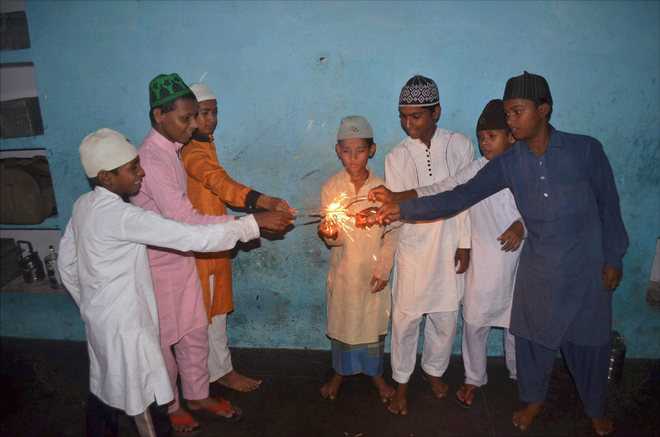Diwali Mubarak! Why the fuss?
Sandeep Sinha
“Diwali Mubarak,” said Justin Trudeau, the Prime Minister of Canada, ruffling many feathers. There were suggestions that he should have said “Badhai” instead of “Mubarak” for after all, isn’t Diwali a festival celebrated mainly by Hindus, Sikhs, Jains and Buddhists to mark the triumph of good over evil. Trudeau was trolled for the use of a word that has its origin in Arabic and which supposedly means “blessing”.
I was myself befuddled, not able to understand the full import of what Trudeau had said. Not until I decided to visit Jaipur on Diwali to meet old friends and rekindle memories in a city that had once been home to me.
The Pink City takes its Diwali seriously and the celebrations take place over three days. On all these three nights, the Pink City is brightly illuminated and people come out onto the streets in droves to see the lights and the streets are abuzz till the wee hours. The whole place is aglow with merriment and the crowd behaviour is a mix of Holi and Dasehra festivities.
It was while watching the lights (roshni) that I suddenly realised something. Muslims in the Diwali crowd were strong in numbers. Women in burqa were out sightseeing and so were the men from the community enjoying their night out.
Hotels and restaurants owned by Muslims were open and doing brisk business. I looked for my old joint of Kallu’s, but in its place had come up a huge restaurant, Muhammadi Palace. So, as the Diwali crowd milled outside, I sat inside, relishing korma and nahari. No eyebrows were raised, no threat of getting lynched, a heartening sign when talks tends to revolve more around topics like intolerance.
Part of the reason for this is that the illuminated area encompasses localities inhabited mostly by members of the minority community as also due to the fact that the Muslim population in the city has increased while that of Hindus declined. The “Population by religion” report of the Census of India says that in terms of population growth, the majority community figures fell by 0.33 per cent while that of the Muslims registered a growth of 0.56 per cent in the period 2001-11. In fact, the Muslim population growth in Jaipur was 33.4 per cent whereas that of Hindus was 25.71 per cent.
The phenomenon is not surprising about a city that reveres its tradition. It is said that once Mehdi Hassan, the famous ghazal singer, was performing at the Albert Hall in London. He learnt that Rajmata Gayatri Devi of Jaipur was in the audience. Mehdi Hassan came down from the stage and touched the Rajmata’s feet as he too was a “Jaipuria”, hailing from Jhunjhunu district of Rajasthan in undivided India.
It was then that I understood why Justin Trudeau, despite being trolled, was not quite off the mark. In fact, I realised that the word “Mubarak” is used for other festivals also. On Christmas, known as “Bara Din” in Hindi, it is customary for schools to teach children the song, “Dekho dekho aaya Mubarak din, hum sab ka yeh pyara din” to celebrate the birth of Jesus Christ.
And as Chhath festivities have begun, a message is doing the rounds on social media, “Gul ne gulshan se paigam bheja hai; sitaron ne gagan se salaam bheja hai; Mubarak ho aapko yeh Chhath Puja; Humne tahe dil se yeh paigam bheja hai.”
Diwali, like Christmas and Eid, celebrates core values like innate goodness, compassion and piety. These are aspects that find an echo in other religions too. And just as Christmas and Eid-ul-Fitr are celebrated across communities, because they are as much about the brighter aspect of life as about faith, so is Diwali.
It is this that makes Donald Trump celebrate Diwali in White House, it is this that makes Britain’s PM Theresa May deliver a special Diwali speech and it is this that makes PM Narendra Modi broadcast Diwali greetings at Times Square in New York for the expatriates.
In the end, religion is as much about people as it is about faith and cognisance of it is a sign of the pulsating pluralistic society we are part of. So, as much as I shall remember the lights, I shall also remember Sohail and Abbas who kept me company on Diwali.









